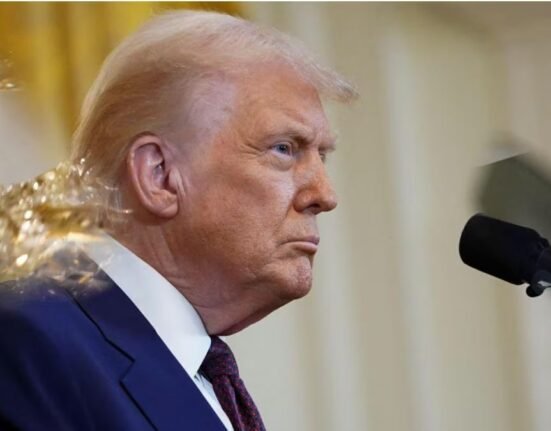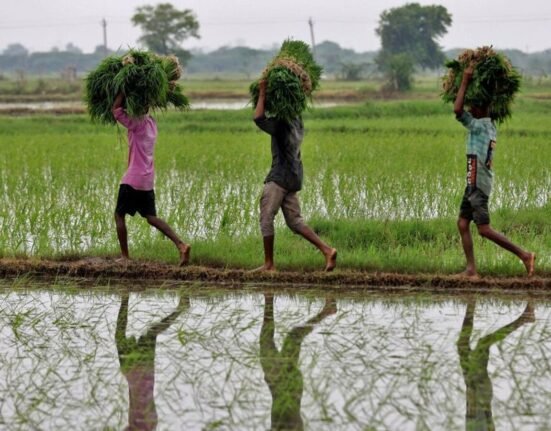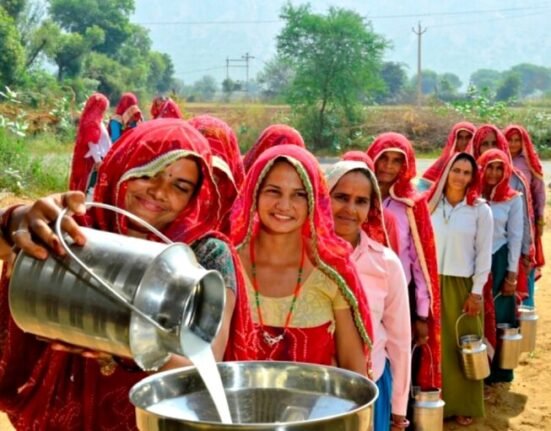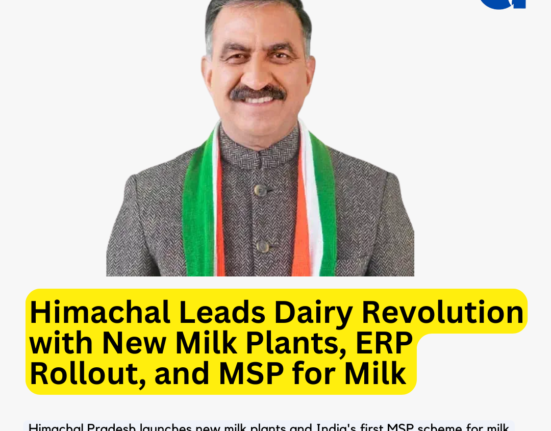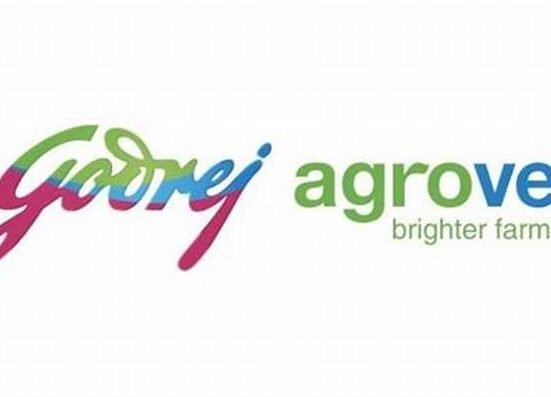India and the United Kingdom have resumed negotiations for a comprehensive trade agreement, aiming to more than double bilateral trade within the next decade. Commerce and Industry Minister Piyush Goyal and UK Business and Trade Secretary Jonathan Reynolds announced this initiative during a joint press conference in New Delhi on Monday.
The revival of talks occurs amidst global economic uncertainties, including tariff threats from U.S. President Donald Trump, who has recently criticized trade barriers in key markets, including India. Despite these challenges, both nations are advancing with a focus on a “path-breaking” free trade agreement (FTA) and an investment treaty.
“This will be a path-breaking free trade agreement,” Goyal stated, expressing confidence that the deal could boost merchandise trade between the two countries two to three times over the next ten years. Bilateral trade in goods and services between India and the UK currently stands at £41 billion (₹4.51 trillion) for the 12 months ending September 2024, according to British government estimates.
The discussions, paused in March 2023 ahead of elections in both countries, gained momentum following talks between Prime Minister Narendra Modi and his British counterpart Keir Starmer on the sidelines of the G20 Summit in Rio de Janeiro in November 2024.
While both sides are optimistic, several sticking points remain. India has long sought easier visa norms for its professionals and businesses to work in the UK, while Britain has pushed for lower agricultural tariffs and greater access to India’s dairy market.
Goyal emphasized the need for a more liberal visa regime to facilitate smoother movement of skilled professionals and businesses between the two nations. He noted that easier visa norms would play a crucial role in promoting bilateral trade and investments: “We have, as part of the FTA, opened up each other’s services sector while protecting the sensitivities that each country has. This will open up new opportunities, and for all of this, business visas will be required and linked to investments and the services being opened up,” Goyal said, adding, “If we both wish to expand our trade and investments, obviously we have to be faster and more liberal in our issuance of visas.”
Goyal clarified that India has “never ever” discussed immigration in any free trade agreement negotiations. He pointed out that Indian students and professionals often travel to countries such as the U.S., UK, Canada, New Zealand, and Australia for education and work. While these countries offer short-term business work visas to gain practical experience, it is not linked to immigration. Reynolds echoed this sentiment, stating that immigration is being addressed as a separate issue outside the trade talks.
Another key hurdle is India’s steep import duty on British whisky, which was recently reduced to 100% from 150% following criticism from U.S. President Trump over “unfair” levies in the Indian market.
Impact on the Dairy Sector
The proposed FTA has significant implications for the dairy industry in both countries. The UK is keen to access India’s vast dairy market, seeking reductions in tariffs and the ability to export British dairy products to India. However, India considers its dairy sector highly sensitive due to the livelihoods of millions of small-scale farmers.
Commerce and Industry Minister Piyush Goyal has consistently maintained that India has no plans to offer duty concessions on dairy products under any FTA. He emphasized that the sector involves livelihood issues of small farmers, making it a sensitive area. “We had discussed this issue even three years ago and on earlier occasions also, and the dairy is such a sensitive sector that in any of our FTAs across the world, we have not been able to open up the sector with duty concessions,” Goyal stated. m.economictimes.com
The National Farmers’ Union (NFU) of the UK has highlighted the challenges of accessing the Indian dairy market, noting that India’s dairy sector is protected to support domestic producers. The NFU emphasizes the need for any agreement to consider the disparities in production standards and the potential impact on UK farmers. nfuonline.com
Historically, India’s refusal to open its dairy market has complicated trade negotiations. For instance, talks with New Zealand for a free trade agreement stalled due to India’s reluctance to allow foreign dairy products into its market. This protectionist stance aims to safeguard the interests of domestic dairy farmers, who operate on a much smaller scale compared to their international counterparts. outlookbusiness.com
In summary, while the India-UK FTA holds promise for enhancing bilateral trade, the dairy sector remains a contentious issue. Balancing the UK’s interest in market access with India’s need to protect its small-scale dairy farmers will be crucial in the ongoing negotiations.
Source: India-UK Free Trade Agreement Talks Resume: Implications for Dairy Industry – Jordbrukare


